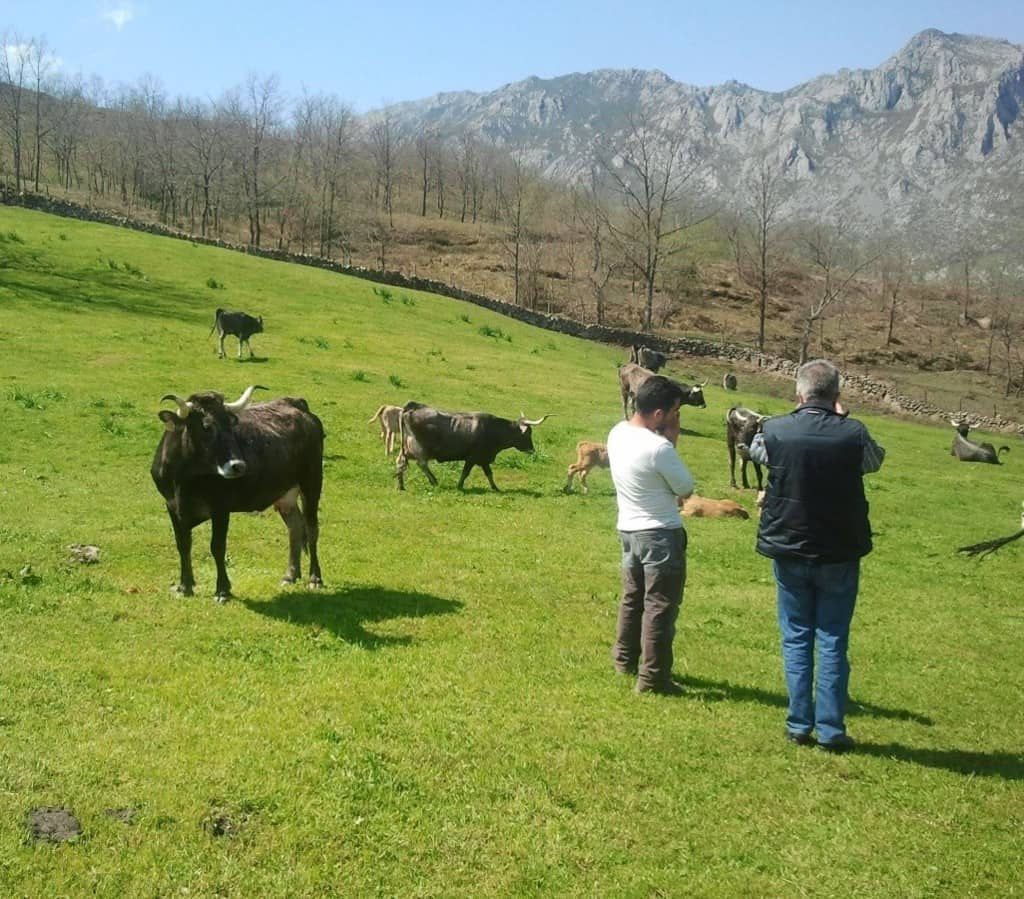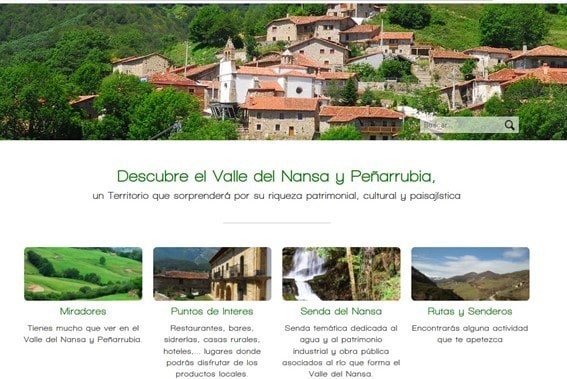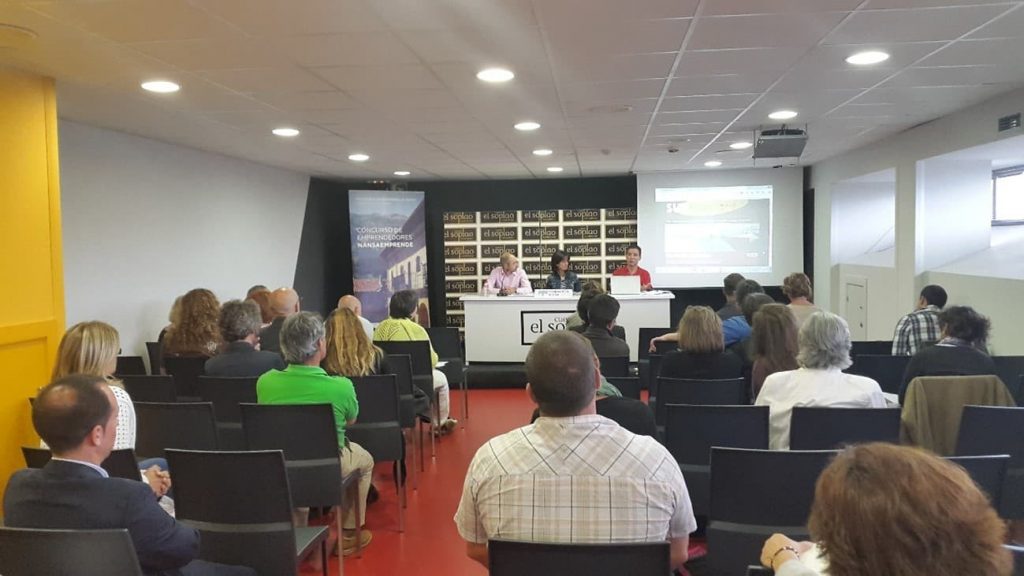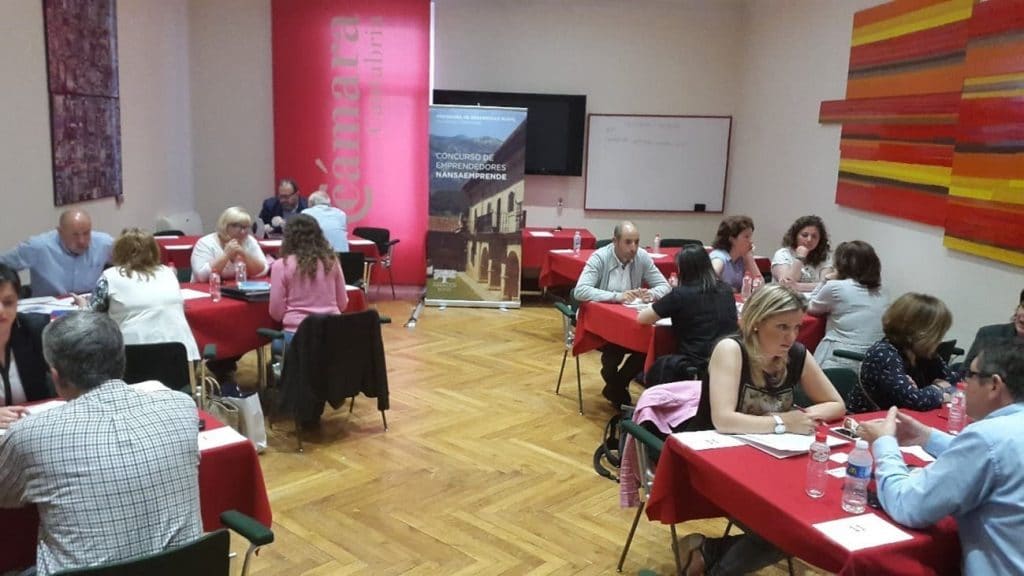Objectives and strategies
Objectives of the economic development programme:
- Innovation and search for alternatives for productive activities.
- Identify business niches based on traditional activities, such as agriculture, livestock, hospitality and rural tourism, and artisan activities.
- Promote changes in attitude and management that make farms and businesses more profitable.
- Stimulate the population, supporting it in change.
- Promote economic diversification in rural areas as a basis for development.
- Facilitate investment of external capital.
Strategies:
- Development of pilot projects as a demonstration.
- Training of the productive fabric and updating of knowledge.
- Technology transfer for the modernisation of services and farms.
- Increase in the added value of production to improve profitability.
- Favour the establishment of agri-food industries and support the commercialization of their products.
- Promote the use of local products and traditional cuisine in gastronomy.
Pilot projects
Marketing of Beef
The programme “Development of a comprehensive system for the production and marketing of quality beef in the Nansa and Peñarrubia valley” was launched in collaboration with the CSIC’s Mountain Livestock School, with the aim of promoting the production of quality beef, which took the form of a project to encourage the fattening of calves registered in the Protected Geographical Indication (PGI) Carne de Cantabria.
This project consists of raising cattle in an extensive cattle-raising regime and with a high percentage of natural pastures, as well as their slaughter under conditions that are also determined, introducing small variations in the traditional management of the farms. After their monitoring, measurement and analysis, it was found that these proposals contributed to an improvement both in their quality and in their profitability.

Once the production system was verified, an agreement was reached with the Cantabrian supermarket chain LUPA, through which the chain acquired directly from the farmers, avoiding intermediaries, all the meat produced under these conditions for marketing.
Once the cycle was closed, it was found that this system represented a 51% increase in the final profit for farmers.
FAs a result of the consolidation and viability of the project, the farmers formed AFTECA, (Association for the Promotion of the Calf of Cantabria), a body that currently coordinates the management of controls, slaughtering and negotiations with Lupa, autonomously, counting on the monitoring of both the Botin Foundation and the CSIC.
TMore than 10 years after its inception, the Livestock Promotion Project continues to maintain leadership in the production of certified meat in Cantabria, representing 65% of certified animals in the region.
As an example, in 2020, 2,454 cattle were slaughtered, representing an increase of 30% over the 2019 figure, which means the certification of 600,000 kilos of meat from PGI Carne de Cantabria and an income of 2.5 M of € for the 130 farmers, from the entire territory of Cantabria, who are active. As a result of this consolidation, the project has contributed to the economic stability of the suppliers, who have maintained their daily activity.
Turism

The Nansa Valley Web has been developed in order to contribute to the socioeconomic improvement of the population by promoting tourism, using heritage for the development and comprehensive appreciation of the endogenous potentials of the territory.
CWith the motto “Get to know the Nansa and Peñarrubia valley, a Territory that will surprise you for its rich heritage, culture and scenery”, the website www.valledelnansa.org proposes itineraries of landscape, nuclei, fluvial, linked to industrial heritage and historical paths . The spaces are interactive with each other. Each point of interest has a detailed file that includes information, images and coordinates of its geopositioning.
This initiative seeks to enhance the information and publications generated by the Botin Foundation within the framework of the programme, in the Nansa and Peñarrubia valley, making it accessible through the internet. The objective is to enhance the enjoyment and quality of the travelling experience, facilitate its journey and improve the understanding of this territory, through its natural, historical, cultural or landscape keys, while promoting quality tourism.

Activities and training actions
Numerous training and informative actions have been carried out, such as courses, conferences, and round tables on various topics, with the aim of supporting and promoting economic activities in the Nansa Valley and Peñarrubia:
Activities related to the Economic Development of the Nansa and Peñarrubia Valley.
- Conference “Electronic Commerce from the Rural Environment”
Conference on the importance of digital transformation in rural areas, in which experts, managers of platforms and companies specialized in providing services in rural areas, as well as rural entrepreneurs who shared their experiences with digitization, participated.

- Training session “Dare yourself – Know the Reality. Start from Anywhere “
Proposed day to reinforce the commitment to the promotion of entrepreneurial talent in rural areas, an event that began with the question: Do you know what a prestigious chef, a computer programmer, a coach, a business angel, or a store have in common? of clothes? The answer was obtained at the end of the day in which the personal experiences of these very varied entrepreneurs came to the rural environment, who at some point in their entrepreneurial journey had fallen and got up several times.
- Conference on Networking for the Rural Environment.
These conferences are developed in collaboration with the Chamber of Commerce of Cantabria, making a space available to companies and entrepreneurs in the region that encourages the development of contacts, collaborations and business opportunities in rural areas.
The sessions are structured so that attendees have around 10 bilateral meetings, each lasting a maximum of 10 minutes, depending on the previously established criteria. The results of this event, which produced more than 300 contacts, were very satisfactory, fostering the development of collaborations and business opportunities in rural areas.

Activities in the primary sector
- Visit with farmers from the Nansa Valley to other farms of reference:
Training visit to introduce farmers to other more advanced livestock models, both in facilities and in management and technical management systems.
They visited a beef farm in the Moreruela Farm (Zamora) and a cattle farm in the Esla valley in Puente Almhuey (León).

- Visit with entrepreneurs of agri-food industries of the Nansa Valley to other reference models:
A visit was made to the Ciembeda Artisan Cheese Factory, in Toral de los Guzmanes (León), as an experience for the next start-up of a cottage cheese industry in Linares, by young entrepreneurs.
Economic Development
